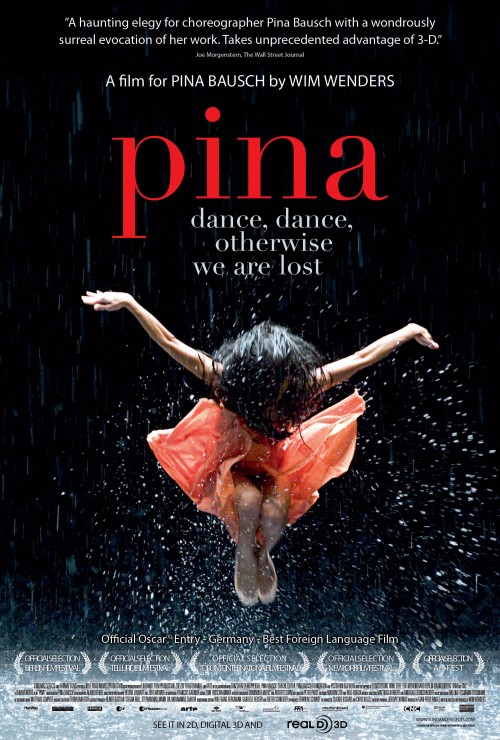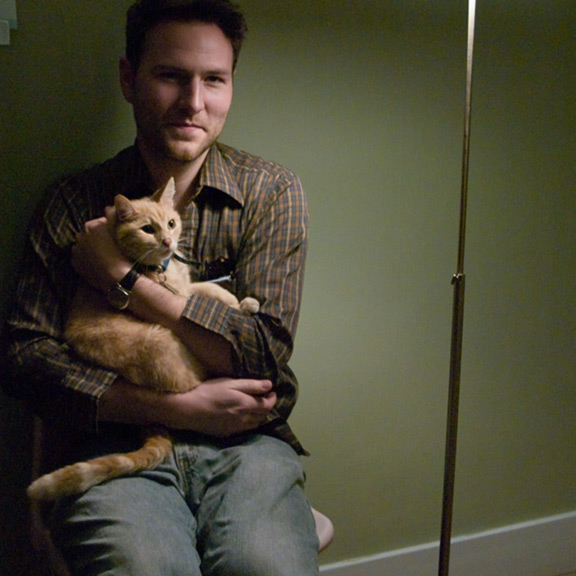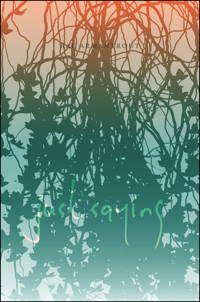Television and the Destruction of the Moral Universe
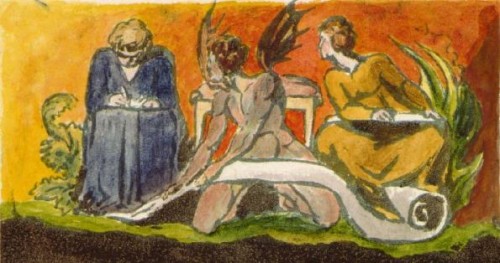 I think a lot about television and the destruction of the moral universe. Once, I tweeted, “A whole moral universe can be created in the span of a movie, whereas television has room to prove that no universe is strictly moral.” I was thinking about punishment and permission. As with any expressive form, of course a television show has creators, akin to gods. Matthew Weiner as the ghost in the machine (I’m misusing the idiom, but I think it works). The trick is whether the writers/show-runner/whoever apply consistent moral principles of punishment and permission to the fates met by the characters.
I think a lot about television and the destruction of the moral universe. Once, I tweeted, “A whole moral universe can be created in the span of a movie, whereas television has room to prove that no universe is strictly moral.” I was thinking about punishment and permission. As with any expressive form, of course a television show has creators, akin to gods. Matthew Weiner as the ghost in the machine (I’m misusing the idiom, but I think it works). The trick is whether the writers/show-runner/whoever apply consistent moral principles of punishment and permission to the fates met by the characters.
Today, Joyce Carol Oates tweeted, “Please disclose whether the coldly reptilian wife of the ‘majority whip’ in House of Cards is eventually terribly punished.”
I can only guess that Joyce Carol Oates will not continue to watch unless she knows the House of Cards universe is as strictly moral as the Scottish play to which it pays overly stylized (if I’m being nice), at times fatuous (if I’m not) homage. In a moral universe, a pretty young virtuous thing might be tragically victimized, but she’s a kind of rapturous sacrifice, and her offenders get their comeuppance and presumably rot in hell, at least one of their own making.
When I looked up “moral universe” on Wikipedia, I saw what it (the god of Wikipedia) calls his “oft-quoted saying, ‘if God does not exist, then everything is permitted.'” Permitted by whom, Fyodor? Still seems like there is a god there doing the permitting, since a secular nation can still have laws. Just a really permissive god, too distracted or checked out to enact discipline, like a Nancy Botwin or Al Bundy of a god.
When Gabe Durham and Ken Baumann unveiled plans for Boss Fight Books, I thought a lot about my favorite game as a child, Oregon Trail. The god of that game was real and Puritanical. The game rewarded good sense, a bent toward commerce, dignity, and steadfastness. Showing the wherewithal to notice and treat the early signs of dysentery in your 8-year-old son tended to garner you more than just a cure, it seemed also to promise friendlier Indians at the ferry crossing and a glut of bigger, slower game at the hunting range.
But suppose you killed more buffalo than you could carry, more than your share. Suppose that case of dysentery set in faster than you could catch it, and say that 8-year-old who you sort of weirdly named after your current 7th-grade crush went and died on you, and you were faced with a choice of whether to honor your dead or not, and you elected to bear immediately on without providing what the game called “a proper burial.” That kind of waste, that kind of unchristian haste would meet with sudden and fearsome retribution from the hands of the Oregon Trail sovereign, and I’m talking much more than a broken axle or an ox wandered off. More like: “5 members of your party drowned.” “Your wagon has turned around.” “You lost: everyone in your wagon has died.”
Kate Durbin interviews Rob Wittig & Mark C. Marino of “Tempspence”
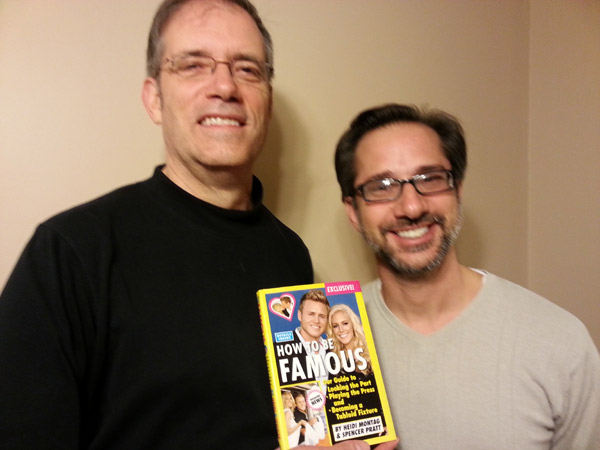
In January 2013, reality television star Spencer Pratt offered use of his official Twitter account to electronic literature writers Mark Marino and Rob Wittig while he was filming Celebrity Big Brother in London. The result was a netprov (networked improv narrative) project in which a fictional British poet supposedly hijacked Spencer’s phone and identity, was then unmasked, and began to promote his own poetry. The fictional British poet wound up encouraging Spencer’s followers to write their own poems. Originally titled “Reality,” the project was dubbed Temporary Spencer or “Tempspence” by fans.
As someone who follows and re-tweets celebrities on Twitter for my own conceptual Twitter project, I came across Tempspence naturally, as I followed and re-tweeted Spencer Pratt already. When Spencer / Temspence tweeted that he was buying his girlfriend Heidi Montag my collaborator Amaranth Borsuk’s digital poetry book Between Page and Screen, the top of my head exploded, in a post-Dickinson-cyberspace kind of way. My own transcription project of an episode of The Hills made Tempspence particularly fascinating to me, since I’d been studying the multi-faceted character of Spencer Pratt for a long time. And of course I cannot resist any project that implodes the false distance between mediums / worlds normally considered totally disparate, such as reality TV and avant garde literature. So, after eagerly following the Tempspence project to its completion, I knew I had to find out more about the masterminds behind it.
Kate: Tell me how Tempspence came about. It seems a miracle of literary and reality TV worlds colliding!
Mark: Spencer was a student in my Advanced Writing course at USC. During that class, Rob and I ran a netprov called F.A.I.L. (Fantasy Automated Investors’ League) with the students. That game introduced Spencer to #netprov, but I believe he has a natural affinity for improvised performance after years on Reality TV. He’d also seen my Workstudy Seth tweets and commiserated about having someone go rogue on your Twitter account. So as January approached and he knew he’d be sequestered from Twitter for three weeks (or less), he asked if I’d be interested in running a netprov through his account. He initially proposed me Tweeting as him on a phone hidden in the Big Brother house, but since the logistics of that were too difficult, given the distance, the constant surveillance, and the time difference, I proposed the “lost phone” idea. Playing a fictional character in England who had found his phone would be much easier, and so on Jan 1, Heidi Tweeted that Spencer had lost the new phone she’d bought Spencer for Christmas during their wild New Year’s Eve celebrations.
Kate: I love this on so many levels. I love that Spencer, the reality TV celebrity, was your student, Mark, and I also love that he was the one who approached you to run a netprov through his account. I love that he “got” the game, and was willing to play, although I think you are right that his work in reality TV would naturally attune him toward improv performance, as well as performance mediated through the latest technological mediums, trying out new ways of reaching an audience. Spencer on The Hills was such a fascinating character–you could almost see his mind working as he improvised scenes, manipulating situations to evoke audience response. It sounds like he saw a similar opportunity in working with you two.
Did Spencer talk to you at all about what he specifically hoped to gain through the experience, or why he wanted to do this? And why did you guys want to do it? Was there a particular experience you wanted to have, or to create?
Mark: Well, Spencer’s account is almost at 1 million followers. Almost. And getting to know him and his oeuvre, I have come to recognize him as king of the publicity stunt. That’s why it was almost impossible to shake people’s belief that Spencer was the one behind the account the whole time. Also, the literary element, the poet and his games, allowed Spencer to do something more sophisticated with his image than say, blowing his fortune on the 2012 apocalypse. For Rob and I, it was a chance to bring netprov to a huge audience that had not previously been exposed to it — except in the very general sense that Spencerpratt account is basically always netprov. But playing with Spencer’s image was the ultimate lure. Like I was saying, as a reality tv star, Spencer lives a kind netprov, and yet people always think they’re getting the “real” him. They were aghast (or pretended to be) at the thought that someone other than Spencer would Tweet from his account either as a stunt or having stolen or found his phone. I would get tides of hate from all sides. READ MORE >
IRL by Grant Singer, Patrik Sandberg, others

It isn’t reactive or responsive. That would be another segment of media, another bunch of freaks. You freaks, maybe.
It’s preservative. Like, poison chemicals, shrinkwrap, electrical tape. Cool dairy at a Manhattan bodega. Expired?
OPEN on the horror of being young in New York City in 2012.
OPEN on contemporary nightsweats.
OPEN on a young starlet, Sky Ferreira. Cold dead eyes, perfect skin, broken mind, numb boyfriends.
This film is 15 minutes of shameless, turnt up dread feelings. Photography by Jason McCormick. Hair by Darine Sengseevong. Patrik, who used to do a radio show I listened to before I moved to the Bay Area, wrote it. Grant Singer, with an eye for dark beauty work and terrifyingly empty places, directed.
It’s gross, unrelenting, bleak.
It doesn’t read like a temping short or a paced feature. It reads like a commercial for death. It’s up on your screen for a few minutes, blasting. And you half-conciously consider what is being sold: fucked youth, the unmoored hyper-metropolitan self, art world teen egos grinding up against imagined fame and power, hardened late-20s lust.
Reb Livingston’s Poetry Home
****
When Reb Livingston saw Joe Hall’s Poetry Road she wasn’t impressed. Wasn’t impressed at all. Hell, she told me, more shit goes on in my Poetry Home (where I’m working on my novel, Bombyonder) than all that stupid-ketchup-&-knives, “Poetry Schmoetry Road” bullshit. And so Reb and I did a little interview and photo shoot (her husband, aka “man-meat,” took the shots. Poor devil!).
And the rule, again, fyi, for the interview was that Reb could only answer with language from Bombyonder– samples here and here.
******************************************************************************************************************
Besides Beyonce’s “All the Single Ladies,” Madonna’s “Like a Virgin” and the entire Bette Midler canon, what sort of music and sound things or voices have you been listening to in the ol’ lonesome Poetry Home??
Songs on the fly
The unconscious lizard
A zipper up his ass
Silently managed
Mice crammed into books
The offspring’s first meal
A dead bird blasted
Someone’s dick
Is breaking
******************************************************************************************************************
When Chris (yr monogamous partner of a long, long time) is out of town how do you deal with the physical loneliness and strange arousals of an empty, abandoned Poetry Home (all the bible salesmen, mermen, mail men, athletes, pool boys, James Francos, Nicolas Cages (ahem), hunks, man-sluts, etc, etc, yawn) ??
Snickering like dragons
Hands pawing, probing my privates
Scared, vile and leaking
28 points: Sum by David Eagleman
- David Eagleman doesn’t have a PhD in Creative Writing; he has a PhD in neuroscience. He “runs a lab,” a known euphemism for being really smart or well-connected or crazy. Like many of us, he is best known for his work on time perception, synesthesia, and neurolaw. I think people should be good at one thing, or none. For example, Lindsey Vohn I wouldn’t tolerate as a neighbor. She is a gold medalist/world champion downhill skier AND has a body like a manifesto, hair of poured honey, and incredible access to the drug stash of Tiger Woods. This seems a bit unfair.
- Sum is a flash fiction collection. Forty flash fictions. Forty is a holy number but I’m not sure that’s relative here. (I hate when people use relative when they mean relevant. Several students I don’t admire overuse the term, stench. I have no idea why.)
- Sum is a best seller and is published in about 30 languages, so if you contemplate flash fiction as a variety of minor genre, a weed, per say, you can stick it, or you can keep on thinking it, both are fine. Do what you want to do. This life isn’t a dress rehearsal, now is it?
- Death and science make sense together, like peanut butter and bread, marriage and secret email accounts, etc. They merge. Science shows us that everything is heading to a worse state. Clean your room on Monday and check it out on Friday. It will be messier (unless you add work/energy, but even then soon as you stop adding work/energy/calories, the first dust mote settles and the room heads towards disorder once again…). We are all becoming messier, day by day.
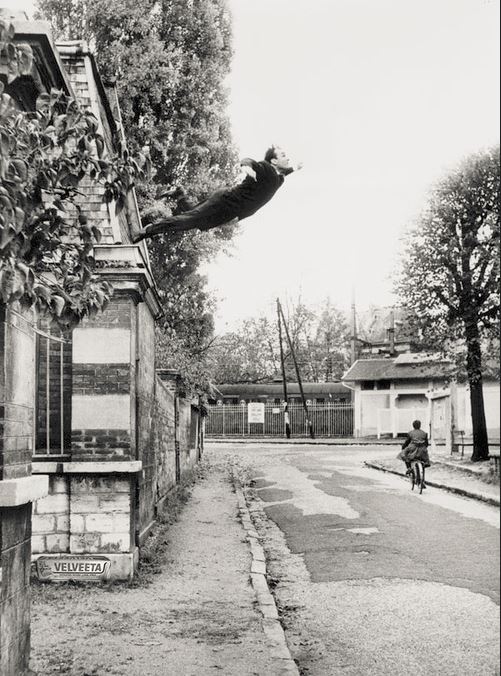
- More and more we get these flash fiction collections.
- This one
- Or this one.
- Or for example, Facebook.
- Ha, ha…groan.
- Every flash by David Eagleman has one subject: the afterlife.
In the afterlife you relive all your experiences, but this time with the events reshuffled into a new order: all the moments that share a quality are grouped together. You spend two months driving the street in front of your house, seven months having sex. You sleep for thirty years without opening your eyes. For five months straight you flip through magazines while sitting on a toilet.
Pina (Bausch) The Movie — Cults and Transcendence (??) — Selling Out (??)
*******
Pina, the movie, Wim Wenders’ movie, about Pina Bausch, the German dancer and choreographer, is a beautiful and strange thing about which much has been said– and I’m going, here, to put my 2 cents into the conversation regarding the inhumanity of the “characters” in the performances; the heavily-emphasized “cult” aspect of Pina and her dancer/followers; and, lastly, the fact that the movie, for all its strangeness, all its ability to jar, alienate and electrify seems to be a tamer and lesser version of what it could have been.
(It’s worth noting, also, that Pina died, unexpectedly, two days before production was set to have begun). READ MORE >
Joshua Marie Wilkinson’s summer reads
We get a ton of books for review consideration on my desk for The Volta. Even though we tried to run weekly reviews for a year, that still didn’t seem to touch anything but the best stuff off the top. So, I’ve pulled out a dozen or so that I’m really excited to read this summer:
Rae Armantrout’s Just Saying is the follow-up to the follow-up to Armantrout’s Pulitzer Prize winner, so I won’t be surprised if it gets less attention than Versed or Money Shot—though it shouldn’t. I’m halfway through it, and it’s just as good:
A woman writes to ask
how far along I am
with my apocalypse
What will you give me
if I tell?
June 24th, 2013 / 2:53 pm
Joe Hall’s Poetry Road
****
Joe Hall is currently about two-thirds done with a 35 day reading tour in support of his new book, The Devotional Poems, and while staying with me here on his Seattle stop, Joe and I did a little interview and photo shoot. (The rule, fyi, for the interview was that Joe could only answer with phrases and lines from his new book.)
******************************************************************************************************************
Besides Willie Nelson’s “On the Road Again” & Bob Seger’s “Turn the Page” what sort of music and sound things have you been listening to on the ol’ lonesome Poetry Road?
In the motherfucking sounds and motherfucking light
All the horns that do not blow
A stethoscope and a quarter ounce
Getting loose, kind of stupid
******************************************************************************************************************
Away from Cheryl (yr monogamous partner of over 7 years , whose absence you named your DC Reading for:“Cheryl’s Gone”), how do you deal with physical loneliness and arousal of the Poetry Road (all the Sirens, deserts, Mermaids, thorn-stimulants, wenches, etc, etc, yawn,…)???
I wake up and my balls are dragging behind me
Like wet paper bags of trash
So I murder that huge ball of pink grasping
Hands
With one shrinking word
Waiting on tender feet
Blotched faces to the flames
I never meant to go, to flee, to leave you READ MORE >
Crying Woolf
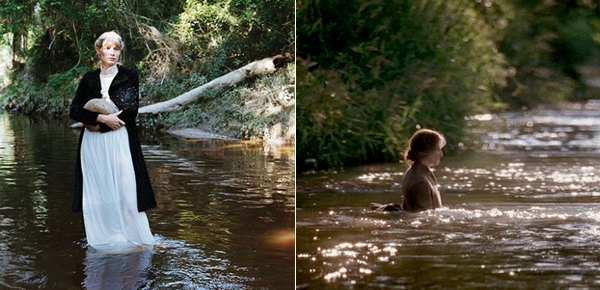
On October 26, 1984, nineteen-year-old John McCollum committed suicide by shooting himself in the head while listening to “Suicide Solution” by Ozzy Osbourne. The former’s parents would later file a lawsuit against the latter, claiming there were “hidden lyrics” telling listeners to shoot themselves. At two minutes into it, between verses, Ozzy does sort of mumble away from the mic what sounds like “soot, soot…haha,” which wife/witness Sharon attributed to her husband’s “minimal” command of the English language. The opening lines wine is fine but whiskey’s quicker / suicide is slow with liquor seem to borrow both cadence and conceit from Dorothy Parker’s “Resumé¹,” in which she offers life as a disappointing alternative to rather uncomfortable death options. Likewise, Ozzy’s lyrics also end in an anti-suicide predictably pro-inebriation stance: take a bottle, drown your sorrows / then it floods away tomorrows. The court dismissed the McCollum lawsuit, ruling that their son’s suicide was just that. His parents wanted someone to blame, because they couldn’t bear blaming themselves. God is the one scapegoat who never talks back, so in the end we all hold him liable, and finally quiet down.
Seattle Author Spotlight (2) — Maged Zaher
Thanks for all the great feedback on the Author Spotlight I did on Richard Chiem! So many flowers (awwww)! So much chocolate (awwww)! And even a phone call from the president which, sadly, went to voicemail. It’s really all been kind of overwhelming (sigh, swoon). But, here anyways, now, is the 2nd Spotlight– on Maged Zaher!
Maged Zaher is very engaging, warm, likable, and was born in a great year (1967, a year in which Rauan Klassnik and Aase Berg were also born.) Maged is currently up for Seattle’s “Stranger Genius Award” which comes with a $5,000 prize. So, congrats, man, & good luck!
(Brendan Kiley, in The Stranger’s write-up on Maged Zaher, describes our Spotlight Author as a “merry melancholic” and goes on to say that “in Zaher’s work, intimacy is the gold medal, but also something to be feared.”)
It was a real pleasure hanging out with Maged for a couple of hours earlier this week. Maged likes to talk poetry, ideology, politics, sociability, soccer, etc, etc. And he’s totally cool with strong, differing opinions which, well, suited me just fine!
This spotlight, then, is comprised of a brief bio, a short interview and a couple of photos. So, say hello now to Maged Zaher!
READ MORE >


